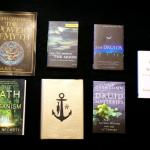This article came across my Facebook feed earlier this week: “Analytic thinking undermines religious belief while intelligence undermines social conservatism, study suggests.” Here’s a summary from the authors of the study.
“Our findings suggest that intuitive thinking serves the upholding of religious beliefs and by extension, growing less religious has more to do with overcoming one’s intuitions, if one has received religious upbringing. On the other hand, adopting socially progressive ideas may have more to do with intelligence compared to cognitive style. Note that these relations are not so clear cut and effect sizes are small.”
The study is locked behind a paywall, but a bit of googling turned it up on one of the professors’ websites. Its scope is broad and its sample size is small, and like too much academic study on religion, it’s based on some incorrect assumptions. While its results appear to be valid within its limitations, its usefulness is minimal and it is ripe for misinterpretation.
To their credit, the authors of the study warn against overly broad interpretation.
“We would like to warn readers to resist the temptation to draw conclusions that suit their ideological worldviews,” Saribay told PsyPost. “One must not think in terms of profiles or categories of people and also not draw simple causal conclusions as our data do not speak to causality.”
Drawing conclusions that suit ideological worldviews is exactly what’s happening. This starts with the way the website presents the study and continues with the way it’s being discussed on social media. Most of it is subtle, reinforcing assumptions that “everyone knows” are true, even though they aren’t.
More Bad Assumptions
Conflating religion with belief and ignoring differences between religions. One more time: the idea that religion is about what you believe is a very modern, Western, Protestant idea. For most people throughout most of history throughout most of the world, religion was and is about what you do, who you are, and whose you are.
My ever-evolving understanding of Gods, spirits, and magic is important. But my practice is more important: prayers, meditations, and offerings. Group worship. Reading and study. Service to the Gods, to Nature, and to my community.
Ask a Southern Baptist how important belief is, and you’ll get one answer. Ask a Roman Catholic and you’ll get a different answer. Ask a Zen Buddhist and you’ll get a third, very different answer.
Religion is a lot more than belief, and different religions place different values on belief.
Associating religious belief with social conservatism. Why would you study religious belief and social conservatism together? There’s only one reason – you think they have something to do with each other. And let’s face it – most social conservatives are also religious conservatives.
But religion is more than conservative religion. Pagans tend to be very liberal. So do Unitarian Universalists, and a good number of mainline Protestants and Jews. There is a conservative wing in the polytheist religions, but that’s a small minority.
The idea that “religious” means “conservative” is false, and serves to drive progressive people away from religion.
“Growing less religious” is a good thing. No, the study doesn’t say this. It just strongly implies it.
Religion has been an integral part of what it means to be human for at least as long as we’ve been human. It’s how we decide what’s most important in life, how we interpret our mystical and magical experiences, and how we deal with the fact that we are now alive but someday we will die. Religion is how we pass our values and our virtues down from generation to generation. It’s how we become a part of something bigger than ourselves.
Believing things that are demonstrably false? Denying established science? Trying to cram your beliefs down someone else’s throat or give them the force of law? Those are all bad things we need to eliminate from the world, but while they’re part of some religions, they aren’t universal to all religions, or even to most.
I want to grow more religious, not less.
Analytic thinking is good, intuitive thinking is bad. According to this article, religion is something you grow out of, by “overcoming” your intuition. So an ability that helped our ancient ancestors stay alive in critical situations and that still gives us insight into things we don’t fully understand is not something to be cultivated but to be overcome? No.
I like analytic thinking. It’s served me well, especially in my professional career as an engineer. Ask hard questions, dig for facts, draw rational conclusions, and be ready to reject anything that’s shown to be false or unhelpful. Analytic thinking is good and necessary.
But my life is orders of magnitude better now that I’ve learned to listen to my intuition. It knows things my analytical brain can’t see and therefore won’t consider. I’m not spending my life chasing the things I’ve been told I was supposed to want, I’m spending it learning and growing and enjoying the work I’m called to do.
We often need to test our intuition to make sure it makes sense, and that we aren’t just telling ourselves what we want to hear. Analytic thinking can help there. But intuition is a way of knowing that needs to be nurtured and developed, not “overcome.”
Social conservatives are stupid. So many of us desperately want this to be true. I mean, we’re smart people, so if somebody disagrees with us, they must be intellectually challenged… or at least not properly educated.
This is how you alienate half the country.
I have no desire to defend social conservatives. They need to learn the fine old conservative practice of minding their own business. But they’re here and we have to deal with them, and we can’t do that if we assume they’re stupid. The difference between liberals and conservatives (whether social, political, or religious) isn’t one of intelligence, but one of worldview and priorities.
What’s going on here
Remember how I grew up – I get it. Religious radicals are blowing up people in the Middle East and trying to legislate transgendered people out of existence in this country. They’re trying to make their religion the only permissible religion. And even when they’re staying out of politics, they’re preaching a religion of fear and manipulation. I want them thoroughly defeated in the political arena and in the marketplace of religions.
But too many people act like there is no difference between fundamentalist religion and open, accepting religion, and thus religion is something we should grow out of. Too many people are so committed to analytic thinking they’re trying to “overcome” their intuition.
And all this sends a not-so-subtle message to those of us for whom religion and intuition are important parts of our lives that we’re somehow less intelligent, less educated, and less thoughtful than our non-religious friends and neighbors.
Never mind the fact that my list of Pagan friends is filled with people with advanced degrees and with independent scholars who do better work than most college professors. Never mind the fact that intuition brings valuable insight into life. Never mind the fact that for all the benefits of analytic thinking, it got me twisted up in mainstream materialism and made me miserable for years.
Research for the sake of research is a good thing. But studies like this have a very narrow focus and often raise as many questions as they answer, particularly when they’re based on bad assumptions about religion and religious people.



















